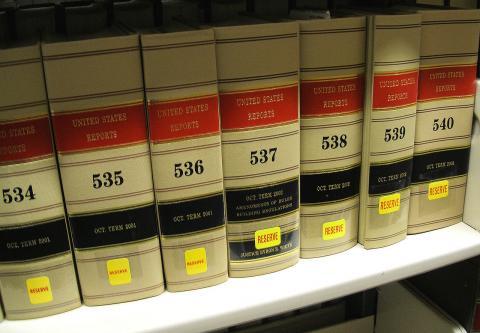Arrest warrant: A document issued by a judge or magistrate that authorizes the police to arrest someone.
Charge: A formal accusation of criminal activity. The prosecuting attorney decides on the charges after reviewing police reports, witness statements, and any other evidence of wrongdoing.
Crime: A crime is an act committed or omitted in violation of a law and for which punishment is imposed upon conviction.
Civil Infraction: An act or omission prohibited by law which is not a crime.
Disposition (decision): the court's final determination of a lawsuit or criminal charge.
Expungement: is a court-ordered process in which the legal record of an arrest or a criminal conviction is "sealed," or erased in the eyes of the law. After the expungement process is complete, an arrest or a criminal conviction ordinarily does not need to be disclosed by the person who was arrested or convicted. However, an expungement will ordinarily be an accessible part of a person’s criminal record, viewable by certain government agencies, including law enforcement and the criminal courts.
Fine: A sum of money, which, by judgment of a competent jurisdiction, is required to be paid for the punishment of an offense – either a felony or misdemeanor.
Felony: Felonies are considered the most serious types of crimes, and are punishable by more than one year in prison. Unlike misdemeanors, defendants convicted of felonies serve their sentences in a state or federal prison rather than a local, city, or county jail.
Guilty: The state of being deemed responsible for the commission of an offense, either as a result of a plea or the adjudication of a judge or jury.
Holmes Youthful Trainee Act (HYTA): Pursuant to MCL Section 762.11, it allows for dismissal of eligible criminal offenses committed by youthful offenders. This statute applies only to offenders that are age 17 but before age 24.
“Capital offenses" (like murder), some criminal sexual conduct charges, major controlled substance charges (drug delivery) and traffic offenses (drunk driving, driving while licenses suspended) are excluded for consideration. This action protects the privacy of the offender while on trainee status. If the court imposed terms are successfully completed, there will be no criminal record.
Jointly and Severally: Two or more persons are fully responsible equally for a liability.
Misdemeanor: A crime - less serious than a felony - which is punishable by fine, probation, and/or imprisonment in a city or county jail, typically for less than one year, rather than in a prison.
Nolo contendere: a plea where the defendant neither admits nor disputes a charge, serving as an alternative to a pleading of guilty or not guilty. A no-contest plea, while not technically a guilty plea, has the same immediate effect as a guilty plea, and is often offered as a part of a plea bargain.
Parole: Any form of release of an offender from imprisonment to the community by a releasing authority prior to the expiration of his sentence, subject to conditions imposed by the releasing authority and to its supervision, including a term of supervised release.
Probation: A court-imposed sentence that subjects those convicted of a crime to stated conditions and restrictions – often instead of jail or prison.
Restitution:
In civil cases: A remedy associated with unjust enrichment in which the amount of recovery is typically based on the defendant's gain rather than the plaintiff's loss.
In criminal cases: Full or partial compensation for loss paid by a criminal to a victim that is ordered as part of a criminal sentence or as a condition of probation.
Sentence: Punishment in a criminal case. A sentence can range from a fine and community service to life imprisonment or death. For most crimes, the sentence is chosen by the trial judge; the jury chooses the sentence only in a capital case, when it must choose between life in prison without parole and death.
Set aside: to cancel, annul, or revoke a prior judgment of a court.
Traffic Offense: a violation of vehicle laws that is committed by the driver of a vehicle, while the vehicle is moving.

